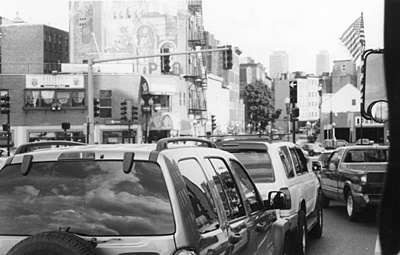All Nonfiction
- Bullying
- Books
- Academic
- Author Interviews
- Celebrity interviews
- College Articles
- College Essays
- Educator of the Year
- Heroes
- Interviews
- Memoir
- Personal Experience
- Sports
- Travel & Culture
All Opinions
- Bullying
- Current Events / Politics
- Discrimination
- Drugs / Alcohol / Smoking
- Entertainment / Celebrities
- Environment
- Love / Relationships
- Movies / Music / TV
- Pop Culture / Trends
- School / College
- Social Issues / Civics
- Spirituality / Religion
- Sports / Hobbies
All Hot Topics
- Bullying
- Community Service
- Environment
- Health
- Letters to the Editor
- Pride & Prejudice
- What Matters
- Back
Summer Guide
- Program Links
- Program Reviews
- Back
College Guide
- College Links
- College Reviews
- College Essays
- College Articles
- Back
Paradoxical Identity MAG
I.
Allen Ginsberg said he
watched the best minds of his
generation destroyed by madness;
I am stuck between appreciation of ecstasy
and the multitudes of remembrance.
II.
Unknowingly, he has created a
paradox: there must always be those
entranced with life,
and those who analyze the enamored.
III.
At what age can these
archetypes be coalesced?
The abstainer and the indulgent idle.
The observer staring passively,
he drops a pen dangling loosely between
red lip and red lip,
learns to dance with witches. Learns to
swim in foul rivers. He is wounded,
bleeds lurid black ink;
IV.
I want to hold the records and feel the flesh.
Keep my wits, sacrifice the loneliness.
Can I not be both Carr
and Ginsberg? My oneness is corrupted,
unclear in definition.
V.
Present and
nonexistent.
My face in the mirror,
cubism,
a finger running over my rosewater mouth,
sweet hymnals humming in the
foreign chambers of my throat.
I see a small girl
with a grown woman’s mind,
her ripeness and lust and shape.
VI.
I am both aching and contented.
My reflection will never match my
self,
an ever-present distortion of identity,
but herein lies the fix:
I can navigate the jagged lines of the
poet’s paradox.
I will not be destroyed by this madness,
nor will I be withheld from joy;
VII.
I am blooming.

Similar Articles
JOIN THE DISCUSSION
This article has 0 comments.

Allen Ginsberg and Lucien Carr were two beat poets who happened to be best friends. Ginsberg was the observer; he went on to become a wildly successful poet. Carr was the experiencer; he ended up killing a man.